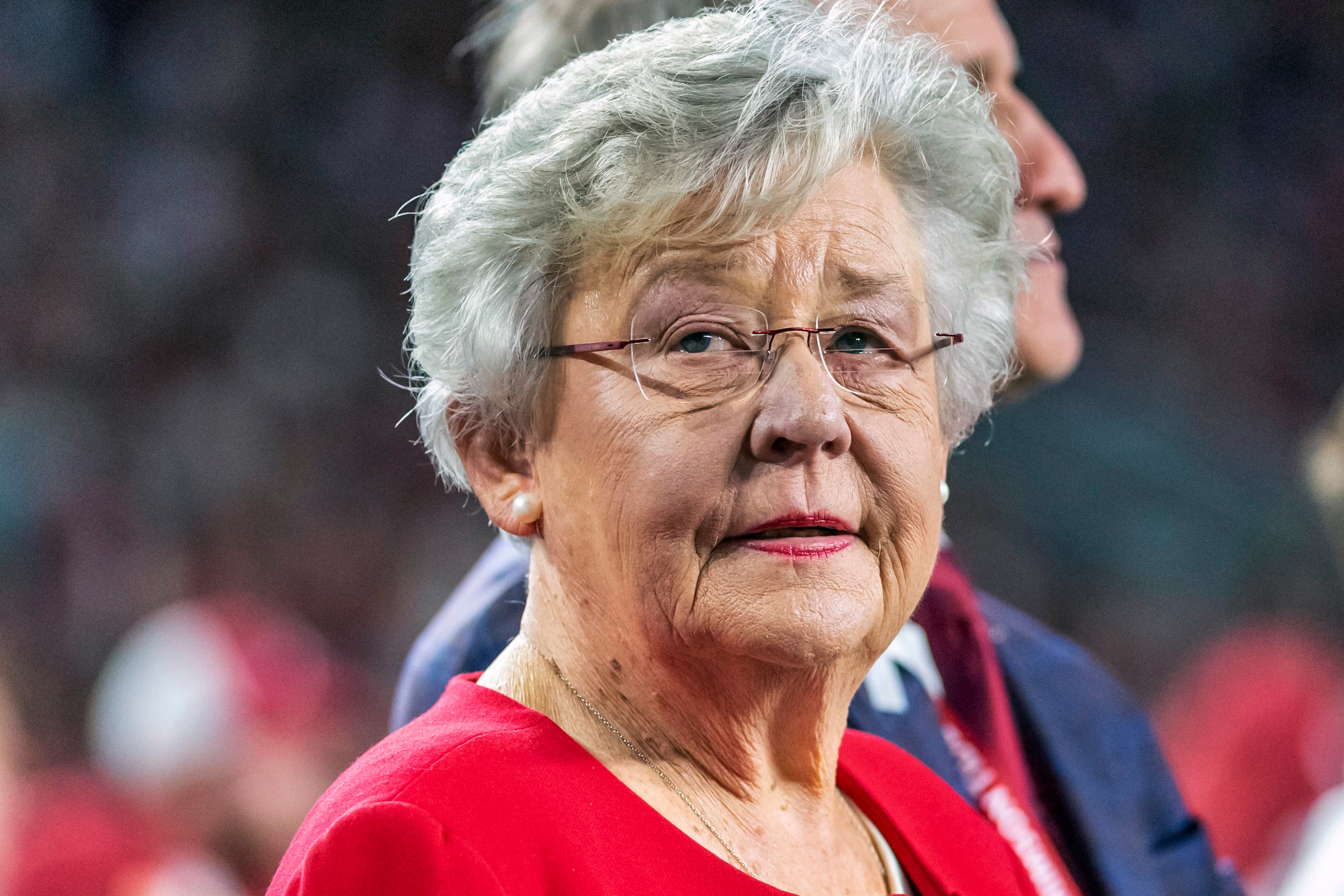Uproar: Alabama governor to lease prisons, despite criticism
Alabama Gov. Kay Ivey plans next week to sign leases for two privately built prisons despite sharp criticism from opponents of the plan

Your support helps us to tell the story
From reproductive rights to climate change to Big Tech, The Independent is on the ground when the story is developing. Whether it's investigating the financials of Elon Musk's pro-Trump PAC or producing our latest documentary, 'The A Word', which shines a light on the American women fighting for reproductive rights, we know how important it is to parse out the facts from the messaging.
At such a critical moment in US history, we need reporters on the ground. Your donation allows us to keep sending journalists to speak to both sides of the story.
The Independent is trusted by Americans across the entire political spectrum. And unlike many other quality news outlets, we choose not to lock Americans out of our reporting and analysis with paywalls. We believe quality journalism should be available to everyone, paid for by those who can afford it.
Your support makes all the difference.Alabama Gov. Kay Ivey said she plans to sign agreements Monday for two privately built prisons, despite lawmakers' complaints about the pricetag and lack of public transparency and warnings from advocacy groups that such prisons won't address chronic violence and severe staffing woes.
Ivey spokeswoman Gina Maiola said the governor will sign agreements to lease two new men’s correctional facilities to be constructed by CoreCivic one of the nations largest private prison companies. The governor's office has said the prisons would be run by the state but the buildings would be leased from the companies.
The governor’s office did not release details, including costs. The original proposal had called for the state building three megaprisons and closing many existing facilities. The governor’s office has not disclosed a final cost but previously said the developers are aware of an “affordability limit” of $88 million per year. That would equate to $2.6 billion for a 30-year lease.
“We are anticipating her to put pen to paper, and as soon as she does, we will be releasing more details. We hoped it would have been sooner, but we are working as quickly as possible to get the best possible deal for the state,” Maiola said.
Ivey has proposed the construction as a partial solution to Alabama's longstanding problems in corrections, which had drawn the scrutiny of federal watchdogs.
In December, the U.S. Department of Justice filed a lawsuit against Alabama over conditions in the state prisons, saying the state is failing to protect male inmates from inmate-on-inmate violence and excessive force at the hands of prison staff. The state's Department of Correction has said the lawsuit ignores progress the state has made to improve the lockups.
The prison building proposal has met with sharp criticism from a coalition of advocacy groups, including the American Civil Liberties Union of Alabama, Alabama Students Against Prisons and the Ordinary Peoples Society. In a letter to lawmakers and others, they said Alabama is getting “swindled” and that new prison construction will not address the underlying problems in the correctional system.
“It is astounding that Governor Ivey is prioritizing fiscally irresponsible and devastating contracts for prisons that do not address our most urgent needs as Alabamians,” the groups wrote.
They urged lawmakers to try to stop the prisons. “Throughout the entire process, they have acted behind closed doors, keeping the public and even you—our elected leaders—entirely in the dark,” the groups wrote.
Instead of a bond issue to borrow money to build the prisons, which would require legislative approval, the governor can sign the leases without legislative approval. A group of lawmakers this week urged the administration to release more information, including the profit margin for companies before signing the leases.
Republican Rep. Rich Wingo of Tuscaloosa said that because lawmakers will be responsible for any funding shortfall, they need to know more information about the plan.
“Since we are responsible for the people’s money, I am just asking you and your help before we move forward with a signature on a lease with these two developers,” Wingo said. “I think this committee deserves to know what the return on cost really is for the developers.”
Regions bank confirmed Saturday that it was ending a banking relationship with CoreCivic after a contractual relationship ends in 2023. However, it is not clear if that will have any impact on the Alabama construction project. Regions said executives met with the Black Lives Matter Birmingham Chapter and other organizations Tuesday to receive feedback on the issue of private prisons.
"We are not extending additional credit services to CoreCivic, and we are specifically not providing CoreCivic with financing for the construction of the prisons to be built in Alabama. To be clear, Regions Bank is 100% committed to creating more inclusive prosperity and advancing racial equity," Regions spokesman Jeremy D. King said in a statement.
In July, the Department of Justice released a report that accused the state of keeping prisoners in unconstitutional conditions. The report detailed a chilling litany of incidents, including a prison guard beating a handcuffed prisoner in a medical unit as the prisoner begged the officer to kill him. Alabama's prison system for men is considered one of the most understaffed and violent in the country.